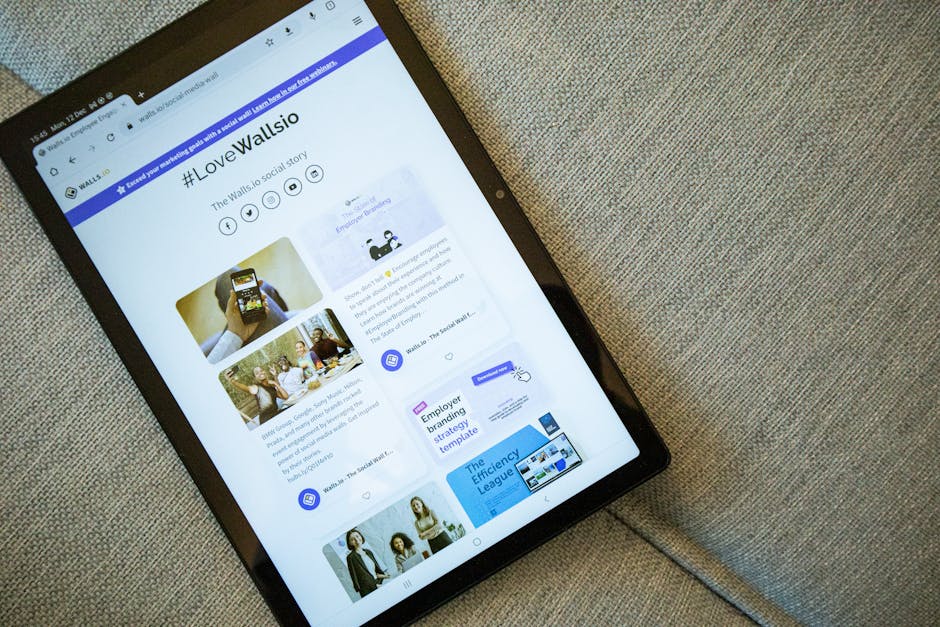The Intersection of Social Media and Emerging SEO Trends
Platforms for online interaction and search engine optimization have become essential strategies for companies to enhance their presence in the digital marketplace. Once viewed as distinct avenues for promotion, platforms designed for social interaction are increasingly influencing how search engines determine their rankings. Google's algorithms have started to consider social signals such as likes, shares, and comments when evaluating a website's authority.

The convergence of online platforms and search engine optimization has created fresh avenues for marketers to boost their visibility, allowing them to maintain relevance in crowded marketplaces.
In the last few years, new developments in search engine optimization, such as optimizing for voice queries, prioritizing mobile-friendly indexing, and focusing on local search strategies, have been shaped by the ways individuals engage with content on social platforms. Social platforms provide real-time engagement and user-generated content that search engines can index, thus impacting a brand's SEO strategy. Understanding the interaction between these two powerful tools is essential for anyone looking to boost their digital footprint effectively.
The Impact of Social Platforms on Search Engine Optimization
While social platforms may not influence search rankings as directly as backlinks or on-page adjustments, they certainly enhance brand visibility in a meaningful way. When content is shared across social platforms like Facebook, Twitter, or LinkedIn, it increases the likelihood of earning organic backlinks. These backlinks contribute positively to a site's ranking because they signal to search engines that the content is valuable and authoritative. Profiles on social networks frequently achieve prominent positions in search engine results, creating greater chances for companies to land on the initial page of search outcomes.
- Social shares increase content visibility.
- More visibility can lead to backlinks from authoritative sites.
- User engagement on social platforms can influence brand perception and trust.
The connection between online platforms and search engine optimization emphasizes the value of being consistently engaged across different channels. The more people engage with your content through likes, shares, or comments, the more search engines may perceive your brand as authoritative and relevant.
The Influence of Social Platforms on SEO Trends
A variety of new SEO trends are being heavily influenced by interactions on social platforms.
1. Optimizing for voice queries
As smart speakers and digital assistants such as Alexa and Google Assistant gain popularity, optimizing for voice search is increasingly becoming a central element in search engine optimization strategies. Platforms for online interaction can enhance voice search optimization by encouraging the creation of conversational content that aligns more closely with the way people naturally communicate, as opposed to how they type. Engaging with customers through Q&A-style posts or casual conversations can help capture the natural language patterns users tend to use during voice searches.
2. Mobile-First Indexing
Google has shifted its algorithm to prioritize mobile-friendly websites because most users now browse via smartphones. Given that many users will access websites through social platforms, it is essential for companies to prioritize fast-loading and user-friendly mobile pages.
3. Local SEO
Neighborhood enterprises gain substantial advantages through engagement on platforms such as Instagram and Facebook, where customers can share their experiences by checking in at venues or posting reviews, thereby boosting local search engine optimization. Positive mentions of a business on social platforms can improve its standing in local search results, offering another path for potential customers to discover your services or products.
The Growing Importance of Video Content
Video ranks among the most frequently shared content formats on various online platforms. Websites such as YouTube, which is a subsidiary of Google, have emerged as independent search engines, with its search traffic now competing closely with that of conventional search engines. This highlights the importance for companies to integrate video content into their online engagement strategies and search engine optimization initiatives.
Videos captivate audiences in a more impactful way than written content, and they also lend themselves to seamless sharing on various platforms. Embedding videos on your website can improve dwell time, a factor that contributes positively to SEO rankings. YouTube descriptions should also be optimized with relevant keywords as they contribute to video discoverability both on YouTube itself and via Google searches.
User-Generated Content (UGC) & Its Impact on SEO
User-generated content (UGC) encompasses various types of material, such as reviews, testimonials, and images, produced by individuals rather than the brands promoting them. Platforms filled with user-generated content present businesses with a valuable opportunity to enhance their online reputation and elevate their search engine optimization efforts. Positive customer reviews shared on platforms like Yelp or Google My Business feed directly into search algorithms' assessments of a site’s trustworthiness.
- UGC increases credibility through authentic customer interactions.
- Reviews and testimonials help with local SEO when tied to specific locations.
- Sharing UGC across social channels encourages organic engagement and sharing.
This type of organic interaction helps build trust with both new customers and search engines alike, reinforcing a business’s online authority over time.
The Emerging Relationship Between Online Platforms and Search Engine Optimization
As these two domains advance, the connection between online platforms and search engine optimization is expected to grow increasingly interdependent. As innovations like artificial intelligence (AI) integrate into Google’s algorithm updates, including BERT, grasping the nuances of user intent is increasingly crucial, reflecting the ways in which individuals interact with social platforms in the present day.
The intersection of these two marketing domains provides businesses with an opportunity: those who understand how to harness the power of both channels will be better positioned for long-term success in an increasingly digital world.
Companies should pay attention to new developments like optimizing for voice search and prioritizing mobile indexing while harnessing user-generated content and video to achieve the greatest influence in these areas.